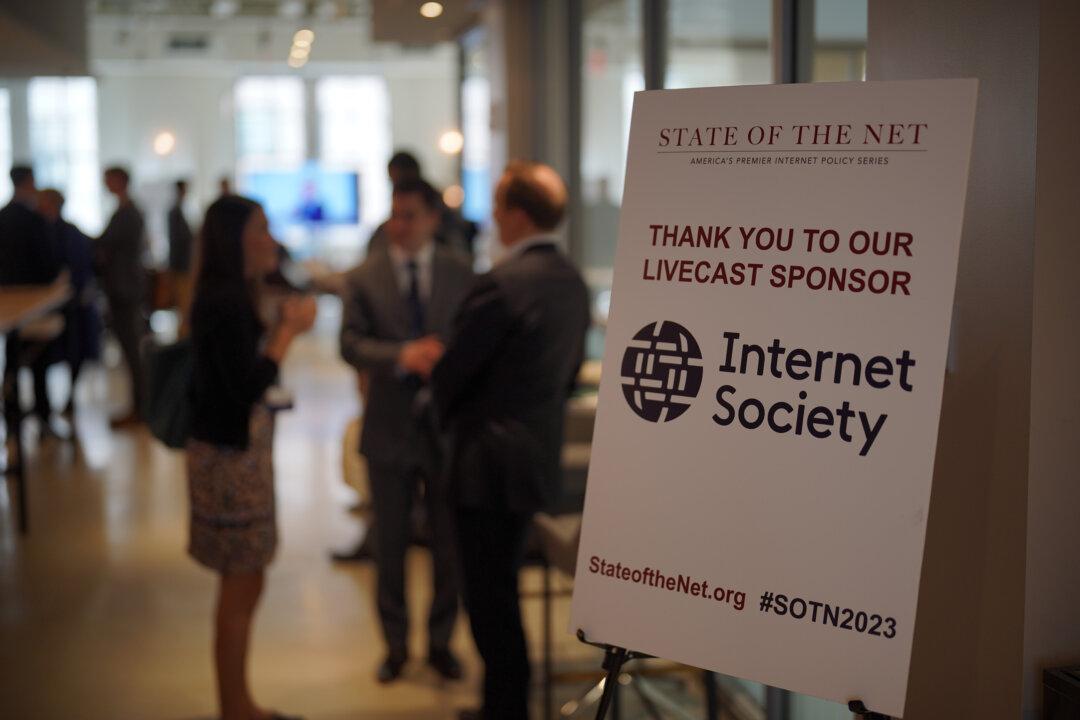
Attendees mingle at the State of the Net 2023 conference in Washington, D.C., on March 6, 2023. Courtesy of Internet Education Foundation
News Analysis
WASHINGTON—Biden administration officials on March 6 called for federal legislation to protect online user privacy at an event sponsored by TikTok.
